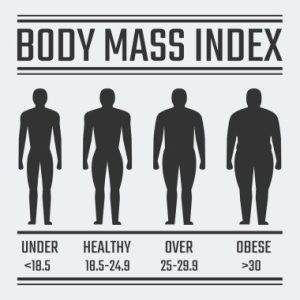
What Is Adequacy In Nutrition (8 Helpful Guidelines)
What is adequacy in nutrition, you may wonder? It refers to ensuring that one’s dietary intake meets the established standards of essential nutrients, promoting optimal health and well-being. In the intricate tapestry of health and well-being, the concept of adequacy in nutrition emerges as a radiant thread, weaving its way through the intricate patterns of vitality.
In the pursuit of well-being, nutritional adequacy emerges as a cornerstone, representing the optimal balance of nutrients crucial for sustaining bodily functions. In this exploration, you delve into the significance of achieving nutritional adequacy and the common lexicon used to discuss this vital aspect of health.
Adequacy transcends mere sustenance; it is the artful orchestration of nutrients that not only fuels the body but nourishes it with the precision of a well-composed symphony. It is the alchemy of balance, where the body receives not just the quantity but the quality of nutrients essential for optimal functioning.
Adequacy in nutrition is the harmonious dance of vitamins, minerals, proteins, and carbohydrates, a choreography that transforms mere consumption into a virtuoso performance, unlocking the secrets to vibrant health and lasting well-being. As you delve into the essence of adequacy, we unravel a captivating narrative of sustenance elevated to an art form—a nourishing masterpiece that beckons us to savor the symphony of good health.

What Is Adequacy In Nutrition
Adequacy in nutrition refers to the sufficient and balanced intake of essential nutrients required for optimal health. Achieving nutritional adequacy involves consuming the right proportions of proteins, carbohydrates, fats, vitamins, and minerals to meet the body’s needs.
Balanced Intake and Essential Nutrients: The Core of Nutritional Adequacy
Adequate nutrition involves a harmonious balance of macronutrients such as proteins, carbohydrates, and fats, essential for energy production and tissue maintenance. Micronutrients such as vitamins and minerals, play a pivotal role in various physiological processes, underscoring the importance of a diverse and well-rounded diet.
Holistic Well-being: Beyond Calories to Comprehensive Nourishment
Beyond mere caloric intake, nutritional adequacy considers the quality of consumed foods, emphasizing whole and unprocessed choices. A holistic approach extends beyond meeting basic energy requirements, focusing on the diverse array of nutrients needed for immune function, cognitive health, and overall vitality.
Essential Nutrients
Macronutrients
Carbohydrates
Carbohydrates serve as the body’s primary energy source, providing fuel for various physiological functions. They are crucial for brain function and muscular activity. The recommended intake of carbohydrates varies but generally constitutes 45-65% of total daily calories. Complex carbohydrates, such as whole grains and vegetables, are preferable over simple sugars for sustained energy.
Proteins
Proteins play a pivotal role in building and repairing tissues, supporting immune function, and serving as enzymes and hormones. The recommended protein intake depends on factors like age, activity level, and health goals, typically ranging from 10-35% of total daily calories. Sources like lean meats, dairy, legumes, and plant-based options contribute to a well-rounded protein intake.
Fats
Fats are essential for absorbing fat-soluble vitamins, providing a concentrated energy source, and maintaining cell structure. While intake varies, it generally comprises 20-35% of total daily calories. Emphasizing healthy fats, such as those found in avocados, nuts, and olive oil, promotes cardiovascular health and overall well-being.
Micronutrients
Vitamins
Fat-soluble vitamins (A, D, E, K)
These vitamins are crucial for vision (A), bone health (D), antioxidant protection (E), and blood clotting (K). Adequate intake is vital for overall health, and sources like vegetables, fruits, dairy, and sunlight contribute to meeting these requirements.
Water-soluble vitamins (B-complex, C)
B-vitamins, including B6, B12, and folate, are essential for energy metabolism, nerve function, and red blood cell formation. Vitamin C supports the immune system and collagen synthesis. A diverse diet with whole grains, fruits, vegetables, and lean proteins ensures a balanced intake of these water-soluble vitamins.
Minerals
Major minerals (calcium, potassium, magnesium)
Calcium is critical for bone health, potassium for heart function, and magnesium for muscle and nerve function. Incorporating dairy, leafy greens, bananas, and nuts into the diet helps maintain optimal levels of these major minerals.
Trace minerals (iron, zinc, copper)
Iron is vital for oxygen transport, zinc supports immune function, and copper is involved in various enzymatic reactions. Balanced intake is essential, with sources like lean meats, legumes, nuts, and seeds contributing to meeting trace mineral requirements.

Dietary Guidelines
Recommended Dietary Allowances (RDAs)
Establishment and Purpose
Recommended Dietary Allowances (RDAs) are meticulously crafted nutritional benchmarks, established by health authorities, to guide individuals towards optimal well-being. These guidelines, rooted in scientific research, delineate the amounts of essential nutrients necessary to meet the nutritional needs of nearly all healthy individuals. They serve as a compass, navigating individuals towards a balanced diet that fuels both vitality and resilience.
Updates and Revisions
RDAs undergo regular updates and revisions to align with the latest advancements in nutritional science. As our understanding of human physiology deepens, these guidelines evolve to reflect the most accurate and beneficial nutritional recommendations. Embracing contemporary research, RDAs stay dynamic, ensuring that individuals receive the most pertinent dietary guidance for sustained health.
Dietary Reference Intakes (DRIs)
Components (RDAs, AIs, ULs, EARs)
Dietary Reference Intakes (DRIs) encompass a comprehensive array of nutritional benchmarks. Beyond RDAs, they include Adequate Intakes (AIs) for substances with insufficient data, Tolerable Upper Intake Levels (ULs) to prevent toxicity, and Estimated Average Requirements (EARs) for population-level assessments. This holistic approach provides a nuanced understanding of nutritional needs, catering to diverse physiological profiles.
Application in Assessing Adequacy
DRIs, with their nuanced components, offer a sophisticated toolkit for evaluating the nutritional adequacy of diets. These guidelines enable a granular analysis, ensuring diets align optimally with individual needs. It signifies precision, emphasizing the meticulous calibration of dietary recommendations to foster health and prevent deficiencies.
Factors Influencing Nutritional Adequacy
Age and Life Stage
Infancy and Childhood
During this critical developmental phase, optimal nutrition is paramount. Essential nutrients like vitamins and minerals contribute to growth, cognition, and immune system development. Parents often seek guidance on age-appropriate diets and feeding practices.
Adolescence
Rapid growth and hormonal changes characterize adolescence, requiring increased nutrient intake. Common concerns include balanced diets for bone health, skin condition, and overall well-being. Peer influence and societal beauty standards also impact dietary choices.
Adulthood
Nutritional needs stabilize, but lifestyle factors such as work-related stress and sedentary habits become prominent. Balanced diets rich in fiber, proteins, and healthy fats are emphasized. Weight management and cardiovascular health are focal points in dietary discussions.
Pregnancy and Lactation
Expectant and nursing mothers necessitate heightened nutritional support. Key considerations involve folate intake for fetal development, iron for blood health, and sufficient caloric intake during lactation. Women often explore prenatal supplements and breastfeeding-friendly diets.

Gender
Nutritional requirements may vary between genders. Men often focus on protein intake for muscle development, while women may prioritize iron and calcium for reproductive health. Dietary preferences are influenced by societal norms and expectations associated with masculinity and femininity.
Physical Activity Levels
Active individuals require tailored nutrition to sustain energy levels and promote recovery. Athletes commonly seek guidance on macronutrient ratios, hydration, and micronutrient supplementation.
Health Conditions
Chronic Diseases
Conditions like diabetes or hypertension demand specialized dietary approaches. Nutrient-dense, low-sodium options are explored to manage long-term health concerns.
Metabolic Conditions
Disorders like thyroid dysfunction impact metabolism. Nutritional strategies revolve around supporting metabolic balance through iodine-rich foods or specific dietary restrictions.
Cultural and Dietary Preferences
Cultural backgrounds and personal preferences significantly shape dietary choices. Tailoring nutritional advice to cultural norms fosters better adherence and satisfaction.
Assessment of Nutritional Adequacy
Assessing nutritional adequacy involves a comprehensive evaluation through various methods to ensure a balanced and healthful diet. Dietary assessment, the cornerstone of this process, employs tools such as food diaries, 24-hour recalls, and food frequency questionnaires. These instruments capture the nuances of daily eating habits, providing a holistic view of nutritional intake.
Biochemical markers, including blood tests and urine analysis, offer a deeper insight into nutrient levels within the body. These diagnostics, often termed “nutrient blood tests” or “metabolic screenings,” aid in identifying specific deficiencies or excesses. Such tests are pivotal for those seeking a nuanced understanding of their nutritional status.
Anthropometric measurements encompassing height, weight, BMI, and waist-to-hip ratio, further contribute to the assessment puzzle. They provide tangible, numerical data reflecting one’s physical proportions, helping gauge overall health and potential nutritional gaps.

Common Nutritional Deficiencies
Iron Deficiency
Iron deficiency, often referred to as anemia, is a prevalent nutritional concern globally. Individuals experiencing fatigue, weakness, and pale skin may be grappling with insufficient iron levels. Commonly known as the “tired blood” condition, it occurs when the body lacks enough iron to produce adequate red blood cells. Incorporating iron-rich foods like spinach, red meat, and beans into one’s diet is pivotal for combating this deficiency.
Vitamin D Deficiency
The “sunshine vitamin” deficiency is a widespread issue, affecting those with limited exposure to sunlight. Symptoms such as bone pain, muscle weakness, and a weakened immune system are indicative of insufficient vitamin D. Embracing sunlight and consuming vitamin D-rich foods like fatty fish and fortified dairy products can counteract this deficiency, promoting overall well-being.
Vitamin B12 Deficiency
Often described as the “energy vitamin,” B12 deficiency can lead to fatigue, weakness, and neurological issues. This vital nutrient, predominantly found in animal products, plays a crucial role in energy production. Those following vegetarian or vegan diets may be particularly susceptible. To address this deficiency, incorporating B12 supplements or fortified foods like cereals and nutritional yeast is essential.
Iodine Deficiency
Iodine deficiency, a leading cause of thyroid-related concerns, is commonly associated with symptoms such as weight gain, fatigue, and goiter. Known as the “thyroid mineral,” iodine is crucial for the production of thyroid hormones. Including iodized salt in the diet and consuming iodine-rich foods like seaweed can prevent and alleviate this deficiency, safeguarding thyroid health.
Calcium Deficiency
The “bone mineral” deficiency, characterized by fragile bones and dental issues, is a prevalent health concern. Insufficient calcium can lead to osteoporosis and other skeletal problems. Incorporating dairy products, leafy greens, and fortified plant-based milk into the diet helps address calcium deficiency, promoting strong bones and overall skeletal health. Regular exercise also aids in calcium absorption.
Incorporating these nutrients into your diet is vital for overall health. If you suspect a deficiency, it’s crucial to consult with a healthcare professional for personalized guidance and potential supplementation.
Promoting Nutritional Adequacy
Promoting nutritional adequacy is crucial for overall well-being, and various strategies play a pivotal role in achieving this goal.
Nutrition Education and Counseling
In the realm of promoting nutritional adequacy, education and counseling serve as indispensable tools. Empowering individuals with knowledge about balanced diets, essential nutrients, and portion control is key to fostering healthier eating habits. Nutritionists and dietitians, equipped with their expertise, guide people toward making informed choices, unraveling the complexities of dietary information.
Public Health Initiatives
Public health initiatives amplify the impact of nutritional adequacy promotion on a broader scale. Governments and organizations spearhead campaigns to raise awareness about the importance of well-balanced diets. These initiatives often leverage community engagement, encouraging collective efforts to enhance nutritional practices and combat malnutrition. The aim is to create a health-conscious society, reflecting a shared commitment to optimal nutrition.
Food Fortification and Enrichment
Food fortification and enrichment emerge as proactive measures to address nutritional gaps in diets. It includes fortifying staple foods with essential vitamins and minerals, ensuring they become potent sources of nutrition. This approach is especially effective in tackling micronutrient deficiencies, making daily diets more wholesome and nutrient-dense.
Dietary Supplements
Dietary supplements provide a targeted boost to nutritional intake, especially when specific nutrients may be lacking. While they are not a substitute for a balanced diet, supplements offer a convenient way to bridge nutrient gaps, contributing to overall health and well-being.
Challenges and Barriers
Socioeconomic Factors
Navigating the path to a healthier lifestyle can be challenging, especially for individuals facing socioeconomic barriers. Limited financial resources often constrain access to nutritious foods and impede the ability to engage in fitness activities.
In many cases, individuals from lower-income backgrounds encounter difficulties securing fresh produce, lean proteins, and gym memberships. The struggle to balance budgetary constraints with the pursuit of a wholesome lifestyle is a prevalent issue, encapsulating challenges such as food insecurity and restricted access to recreational facilities.
Access to Nutrient-Dense Foods
The journey toward optimal health is hindered by obstacles related to accessing nutrient-dense foods. Geographical factors, such as residing in food deserts, amplify the challenge of obtaining fresh, wholesome ingredients.
Additionally, the convenience of processed and fast foods often overshadows the accessibility of nutritious alternatives. This struggle is further compounded by time constraints, making it imperative to bridge the gap between the desire for a balanced diet and the practicality of incorporating nutrient-rich options into daily meals.
Dietary Preferences and Cultural Influences
Culturally rooted dietary preferences often pose significant barriers to adopting healthier lifestyles. Traditional culinary practices and familial expectations may clash with the pursuit of nutritionally balanced diets. Overcoming these challenges requires a nuanced approach that respects cultural diversity while promoting healthier alternatives.
Striking a balance between cultural influences and nutritional needs is essential, as individuals seek to embrace healthier choices without compromising the authenticity and richness of their culinary heritage.
Misinformation and Fad Diets
In the age of information, combating misinformation and fad diets is a formidable challenge on the path to wellness. Misleading claims, trendy diets, and pseudoscientific advice saturate the digital landscape, creating confusion and hindering informed decision-making.
Distinguishing between evidence-based information and fashionable yet unsubstantiated health trends is crucial. The prevalence of quick-fix solutions and sensationalized narratives further complicates the pursuit of sustainable and science-backed approaches to nutrition and fitness.
Frequently Asked Questions (FAQ) About What Is Adequacy In Nutrition
Q1 What does “adequacy in nutrition” mean?
Adequacy in nutrition refers to the concept of consuming a balanced and varied diet that provides all the essential nutrients in sufficient amounts to meet the body’s needs for optimal health and functioning.
Q2 Why is adequacy important in nutrition?
Adequacy ensures that the body receives the right amounts of nutrients necessary for growth, development, energy production, and overall well-being. It helps prevent nutrient deficiencies and supports optimal physiological functions.
Q3 What are essential nutrients, and why are they crucial for nutritional adequacy?
Essential nutrients are substances the body cannot produce on its own and must obtain from the diet. These include vitamins, minerals, essential fatty acids, and essential amino acids. Nutritional adequacy requires an intake of these nutrients in appropriate amounts.
Q4 How can I ensure nutritional adequacy in my diet?
To achieve nutritional adequacy, focus on a diverse and balanced diet that includes a variety of fruits, vegetables, whole grains, lean proteins, and healthy fats. Pay attention to portion sizes and be mindful of meeting recommended daily intake levels for essential nutrients.
Q5 Can a specific diet be considered adequate for everyone?
Individual nutritional needs vary, and there is no one-size-fits-all approach to nutrition. Factors such as age, gender, activity level, health status, and dietary preferences influence nutritional requirements. It’s essential to tailor dietary choices to individual needs.
Q6 What role does portion control play in achieving nutritional adequacy?
Proper portion control is crucial for nutritional adequacy. Consuming appropriate serving sizes helps prevent overeating and ensures a balanced intake of nutrients. It also contributes to weight management and overall health.
Q7 Are supplements necessary for achieving nutritional adequacy?
In most cases, a well-balanced diet can provide all the necessary nutrients. However, in certain situations, such as nutrient deficiencies or specific health conditions, supplements may be recommended. It’s crucial to consult with a healthcare professional before starting any supplementation.
Q8 How does nutritional adequacy impact long-term health?
Nutritional adequacy is linked to long-term health and disease prevention. A balanced diet supports proper growth, reduces the risk of chronic diseases, enhances immune function, and contributes to overall vitality and well-being.
Q9 Can specific populations, such as children or older adults, face challenges in achieving nutritional adequacy?
Yes, different life stages and conditions may present unique challenges in meeting nutritional needs. For example, children, pregnant women, and older adults may have specific requirements, and adjustments to diet may be necessary to ensure nutritional adequacy.
Q10 What are some signs that indicate a lack of nutritional adequacy in a diet?
Signs of nutritional inadequacy may include fatigue, weakness, poor concentration, slow wound healing, frequent illness, and abnormal weight changes. If these symptoms persist, it’s advisable to seek guidance from a healthcare professional or a registered dietitian.
Conclusion
In conclusion, adequacy in nutrition is the cornerstone of maintaining optimal health and well-being. Achieving nutritional adequacy involves obtaining the right balance of essential nutrients, vitamins, and minerals to support the body’s physiological functions. It is not merely about calorie intake but ensuring that the diet provides the necessary building blocks for growth, development, and overall vitality.
Adequate nutrition plays a pivotal role in preventing nutritional deficiencies and associated health issues, promoting proper organ function, and bolstering the immune system. Recognizing the importance of a well-rounded and balanced diet is essential for individuals to make informed choices that contribute to their long-term health and quality of life. As we strive for adequacy in nutrition, we empower ourselves to lead active, fulfilling lives while minimizing the risk of nutrition-related disorders.